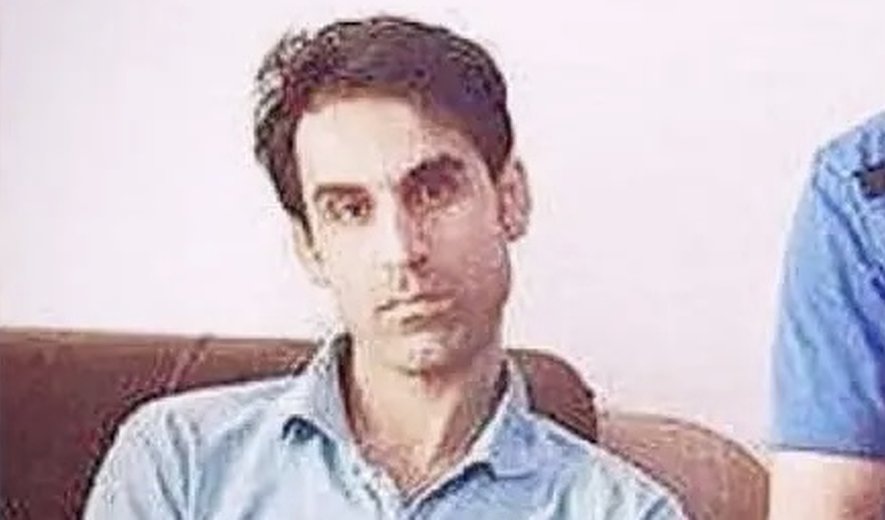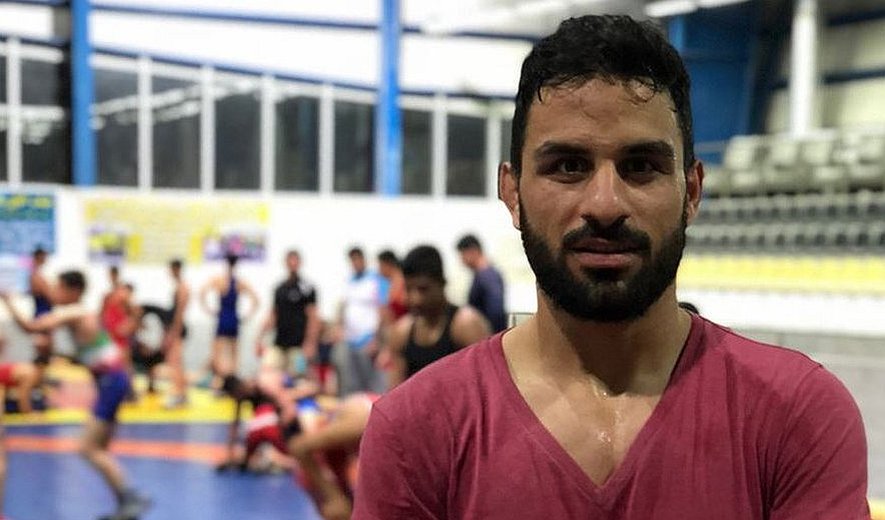Vahid Afkari Receives Death Threat While in Solitary Confinement for Almost 2 Years

Iran Human Rights (IHRNGO); August 23, 2022: Almost two years after his brother Navid Afkari was executed, protester Vahid Afkari who has been held in solitary confinement in Shiraz Central Prison since 5 September 2020, has received death threats from prison officials. Kept in complete isolation, he has also been denied medical treatment for injuries sustained from torture.
According to information obtained by Iran Human Rights, protester Vahid Afkari who was transferred to solitary confinement a week prior to his brother, Navid Afkari’s execution on 12 September 2020, has received death threats in Shiraz Central Prison. Having previously torn the cameras out in his cell, Vahid was told by the prison warden that some people want to take the opportunity to kill him while the cameras are not working.
Vahid was arrested for participating in the August 2018 nationwide protests along with his brother Navid and Habib. Tortured to force confessions, denied due process and without adequate representation, the brothers were sentenced in trials that were a travesty of justice. Navid Afkari who was sentenced to death for both moharebeh (enmity against god) and qisas (retribution-in-kind) for the murder of a government official without any evidence and based on confessions obtained under torture, was executed for the murder charge in Shiraz Central Prison on 12 September 2020. Vahid has been held in solitary confinement where the brothers were transferred a week prior to Navid’s execution, amounting to torture. Habib Afkari was released from prison on March 5 this year.
As Navid’s co-conspirator, 37-year-old Vahid was sentenced to 25 years imprisonment for charges of moharebeh, 25 years for murder, two years for insulting the leader, two years of exile and 74 lashes.
Speaking to Iran Human Rights, an informed source said: “In a visit on April 3, Vahid’s family noticed that four of his fingers were broken and had only been bandaged by the infirmary. Vahid told them that he was beaten up by prison guards after he protested against another prisoner’s mistreatment.”
When the Afkari family went to file a complaint to prison officials, they were fired at two or three times with war ammunition. At the time, their brother, Saeed Afkari reported the incident on Twitter.
Officials had tried to instal cameras in Vahid’s cell after breaking his fingers but he had ripped the camera out and thrown it at their feet each time. According to the source, the cameras covered the toilet area. Subsequently, the prison warden went to visit Vahid.
“After pulling the cameras out, the prison warden went to see Vahid to ask him to let them instal the cameras and said: I have news that some people want to use the fact that there’s no cameras to kill you. I’m extremely worried about Vahid, as if Navid’s blood wasn’t enough for a government whose daily sustenance comes from people’s lives,” Saeed Afkari wrote on Twitter on August 21.
Vahid has also been denied medical treatment in prison. “He has been suffering from severe back problems since being beaten by prison guards around two years ago. He has also lost mobility in his hand after his suicide attempts but has been deprived of medical treatment by prison officials,” the informed source said.
According to the source, Vahid has also been completely isolated from other prisoners and the cells around his were emptied to ensure he has no contact with anyone. “They’ve even changed his visitation days from other prisoners so he doesn’t see anyone,” the source said.
The informed source told Iran Human Rights that keeping Vahid in prolonged solitary is aimed at trying to break his resistance and force him to make false confessions against his brothers, other protesters and accept the charges against him, which he refuses to do.
The UN Standard Minimum Rules for the Treatment of Prisoners (the Nelson Mandela Rules) limits the period of solitary confinement to a maximum of 15 consecutive days, prohibiting solitary confinement for indefinite terms and stipulates that it may only be imposed by a competent authority in accordance with the principles of fairness and due process and must be subject to independent review.


